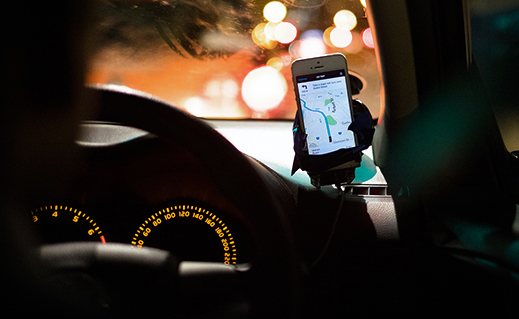Uber and Lyft Are Still Trying to Avoid Acting Like Regular Employers
One of the biggest questions in the gig economy is whether giants like Lyft and Uber will be forced to treat their contracted drivers like regular employees.

A step toward an answer came yesterday when Lyft, the smaller of the two ride-sharing companies, agreed to pay its drivers $12.25 million as part of a legal settlement over how the company treats its contractors. Lyft drivers had been looking for a lot more, including entitlement to minimum wage, compensation for business expenses, and other trappings of traditional employment.
Apart from the cash settlement, Lyft also agreed that drivers could no longer be terminated at will—instead, there will have to be a reason for the termination going forward.
How that bodes for Uber, which is due to face a similar lawsuit in June, remains to be seen. It emerged yesterday that the firm has quietly rolled out a driver tracking program in Houston, Texas, that uses location data to closely monitor drivers’ performance. That includes times when the driver has exceeded the speed limit and accelerated or braked quickly.
Similar monitoring is typical in the trucking industry, where it is known as telematics. Uber says the tracking is useful for ensuring its drivers operate their vehicles safely, and for getting to the bottom of rider complaints about the quality of a ride. Uber could also be interested in the data gathered from such a program as a way to help in its efforts to develop self-driving cars.
But by exerting such control, Uber is running a risk. The class-action lawsuit against the company argues that its drivers aren’t independent contractors at all, but employees deserving of all of the (expensive) rights of employment. The more Uber polices its drivers’ behavior, the more it may look like the drivers have a point.
(Sources: Wall Street Journal, Guardian, Bloomberg, Fast Company)
Keep Reading
Most Popular
Large language models can do jaw-dropping things. But nobody knows exactly why.
And that's a problem. Figuring it out is one of the biggest scientific puzzles of our time and a crucial step towards controlling more powerful future models.
How scientists traced a mysterious covid case back to six toilets
When wastewater surveillance turns into a hunt for a single infected individual, the ethics get tricky.
The problem with plug-in hybrids? Their drivers.
Plug-in hybrids are often sold as a transition to EVs, but new data from Europe shows we’re still underestimating the emissions they produce.
Google DeepMind’s new generative model makes Super Mario–like games from scratch
Genie learns how to control games by watching hours and hours of video. It could help train next-gen robots too.
Stay connected
Get the latest updates from
MIT Technology Review
Discover special offers, top stories, upcoming events, and more.